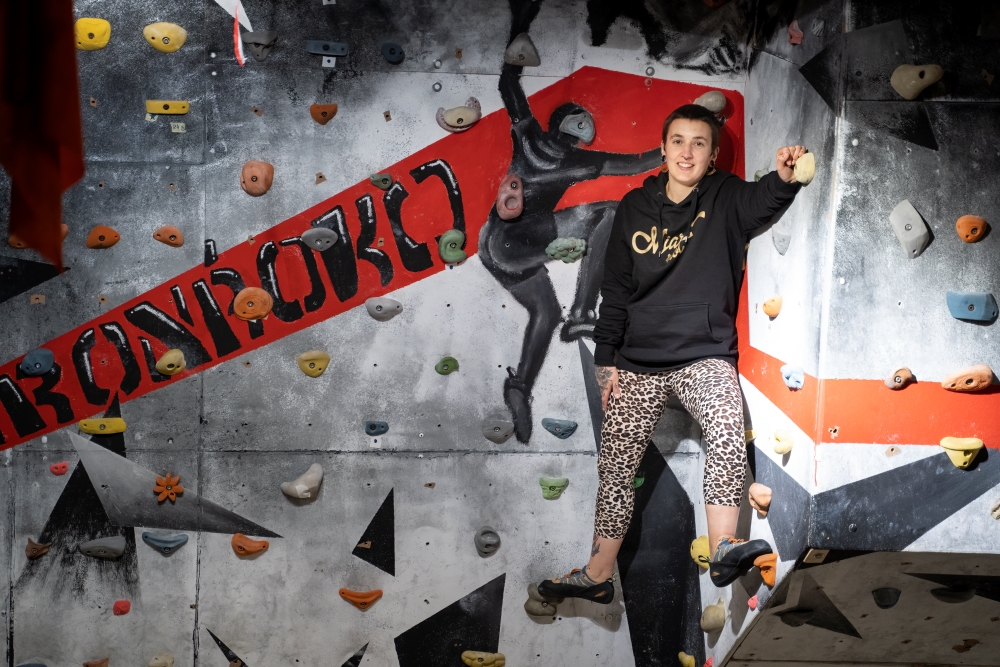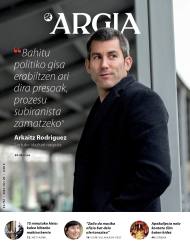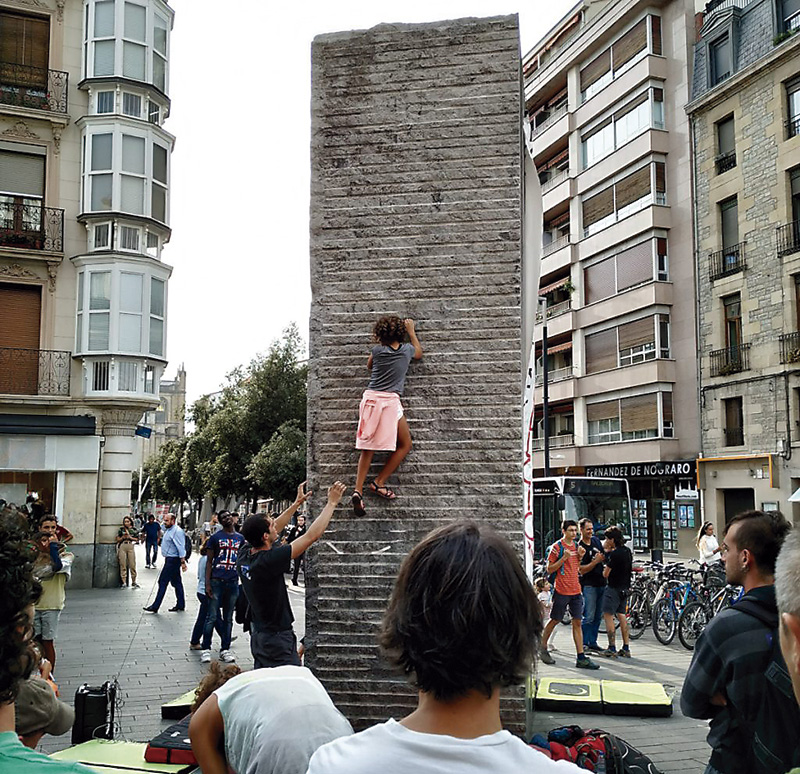“The feminist courtroom changes the way we understand and practice climbing”
- There are many ways to experience climbing. Beyond the competition, María Francisca Mas Riera (Mallorca, Catalan Countries, 1993) has reflected in his recent book Escalantes (More Edicions, Libros DDT, 2021) the emotional side of climbing. From a feminist perspective, she has collected the experiences and reflections of 20 women of different ages, contexts and backgrounds.

First, what is climbing for you?For me it
is a flight, an excuse to get out of everyday life, to get out of town and connect with nature. I don't consider it a sport, I don't do it to train or compete, but because I like it. It's curious to explain the situation, because climbing puts you at risk, sometimes you're afraid, it's an activity that requires concentration. But because the challenges I choose, and not taxes, motivate me.
In this book he has gathered the testimonies of twenty climbers, a report composed of the experiences and reflections of twenty women. What do they have in common? Just as
climbing is part of their lives and identities, everyone has suffered some kind of violence in this regard. They have not felt protagonists of what they were doing, their views have not been taken into account or, as women, they have not been given the opportunity to open a path. The issue of motherhood has also appeared in the interviews. How women and mothers judge us by a risky activity, how our decisions are questioned ...
In general, gender roles and power relations are materialized.
As in other areas of life, they are also reproduced here. But at the same time, climbing can dismantle gender roles or stereotypes. Women have historically appeared as weak subjects, and this activity requires them to be brave and strong, not so physically, but above all mentally. It questions “biologically” and not the categories that have been assigned directly to us. Climbing can help you broaden your point of view, but I do not think it is a virtue of the sport itself, but of the person and their environment. For example, cords between heterosexual couples have toxic relationships and paternalistic treatment.
It is of particular importance the member that helps you, since the one that holds the rope is the one that binds you physically and emotionally. What's the difference between feminist marriage? It's a turning point that changes everything; the way I understand and practice climbing changes radically, but
especially how I feel when I climb. When climbing with women or with non-binary identities, gender roles and hierarchies are less superficial. Understanding is greater among those who have experienced similar situations. In feminist ties, what we've lived with men doesn't happen. Nobody forces you to do something that you don't want, they help you face your fears and they encourage you, you feel comfortable, protected and not pressured. It is also a path from competence among women to friendship, based on trust.
He stressed that although the physical state is important in this discipline, the psychological factor is determinant. Have you ever had scamming syndrome?
Many times they despise us and other times we despise ourselves. Until you sit in groups of equals, they don't value you as much as opening a path. Many emotions come into play, it's very important who's behind the rope. If that person has empathy with you, helps you on the roads, protects you and gives you confidence, that scammer syndrome won't appear. On the contrary, if the other person is the opposite, she will sabotage you and you will also sabotage you.
More than how others persecute us, therefore, it has a direct relationship with self-esteem.
At all events, and I would say that it is becoming easier to work on this self-esteem, because there are more and more female referents. That's why I've written the book. My goal is to visualize concrete experiences and show the emotional side of climbing. To address a new vertex of climbing so that those who have similar experiences, fears and uncertainties can identify with them.
The book also talks about the sexualization of women. Sometimes it comes from outside, but other times we feed it ourselves.
Being the only woman in an area leads us to empower us, sometimes as a sex capital, as Olga explains in her preamble. I've noticed this mostly on social media. In the photos I see on Instagram, half of the climbers appear totally sexualized. I remember one where the woman had boots and crampons on one leg and heels on the other. I'm tired of seeing also the typical picture of a naked woman, surrounded by a rope.
Therefore, the book deals with different vertices. Have you created the Edicions seal for publication, which means that the work will have continuity?
I intend to make a children's book and I would like to do some audiovisual work, a short documentary. I have ideas, but for the moment I will continue with the presentations of the book, enjoying what is giving all of this.
project that started as the final work of the Master of Feminist and Gender Research and continued outside the university. I want to make women visible so that others have references and can identify with these experiences. This book also intends to be an excuse to create new knowledge and climbing groups among those who do not have a network, with the desire to create safe spaces".
Ikerketa Feministak eta Generokoak Masterraren amaierako lana egiteko lau emakume eskalatzaile elkarrizketatu zituen, baina, lana motz geratu zitzaion eta unibertsitateko loturetatik askatzean, ikerketarekin jarraitu nahi zuela erabaki zuen, bere erara. Escalantes (Gehiago... [+]
In recent years, I have heard many times that the confinement that we have lived around me, and the anguish that this has caused, has taught us to value everything around us.
That is how it has been, we have opened the doors and we have all troped out to the street, to the... [+]














